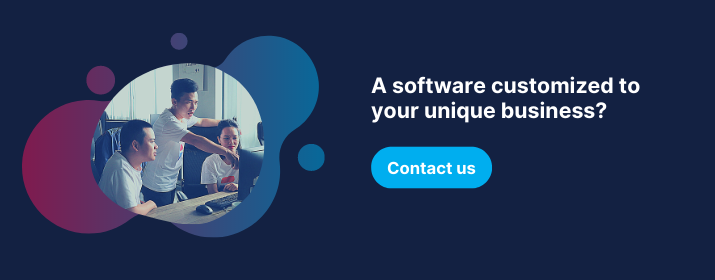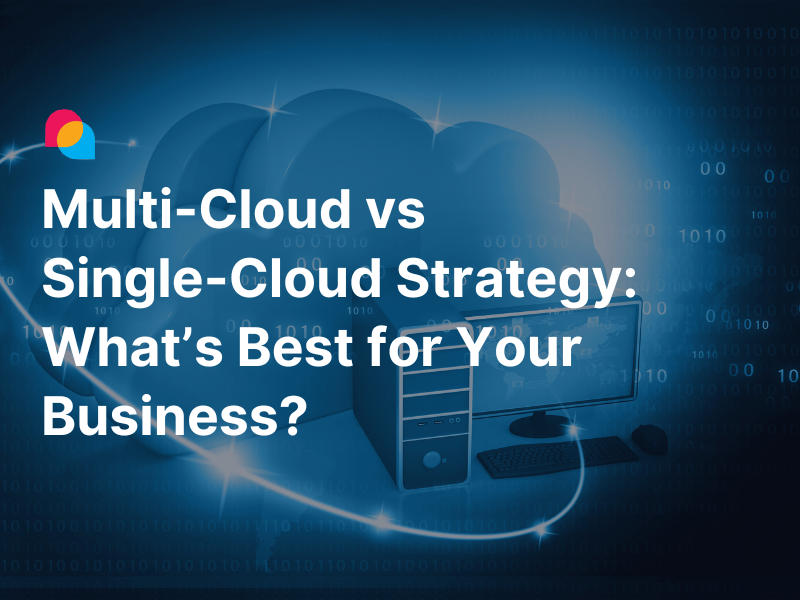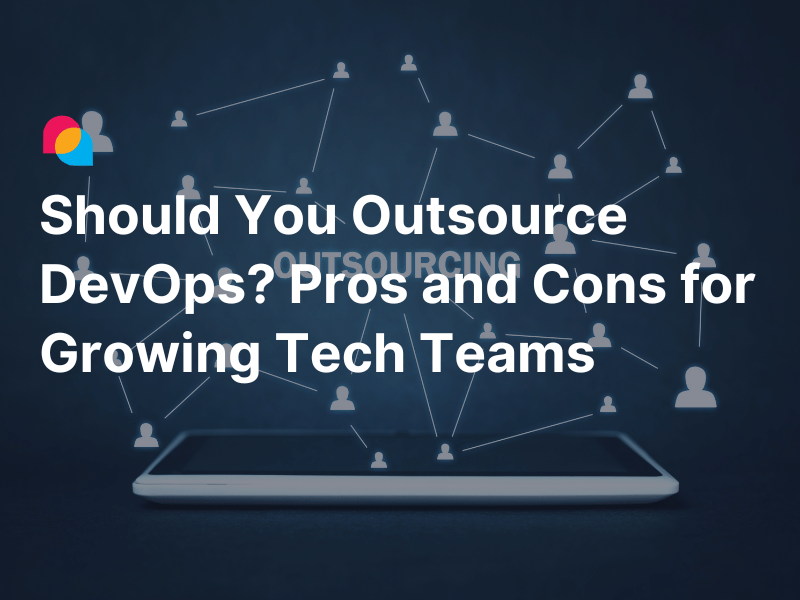In the dynamic world of the hospitality industry, where competition is fierce and guest expectations continue to evolve, the necessity of innovation in hotel operations has never been more critical. This is where custom software solutions come into play, offering a beacon of hope for hoteliers striving to optimize their operations. By tailoring technology to meet the unique demands of the hospitality sector, custom software stands as a key driver of efficiency, guest satisfaction, and overall business success.
Understanding the Scope of Hotel Operations
Core Areas of Hotel Management and Operations
At the heart of hotel management and operations are several core areas, including but not limited to, guest services, room management, food and beverage services, and employee coordination. Each area presents its own set of challenges and opportunities for improvement. Custom software solutions can be designed to target these specific areas, enhancing efficiency, reducing errors, and improving the overall guest experience.
Challenges in Modern Hotel Operations
Modern hotel operations face a myriad of challenges, from the integration of sustainable practices to meeting the digital demands of today's tech-savvy guests. Additionally, the management of a diverse and often fluctuating workforce adds another layer of complexity. Custom software solutions can help hotels navigate these challenges by providing tools for effective communication, workflow management, and data analysis. By leveraging technology, hotels can not only meet but exceed the expectations of modern travelers.
The Role of Custom Software in Transforming Hotel Operations
Unlike off-the-shelf software that offers a one-size-fits-all solution, custom software is developed with an individual hotel's specific requirements in mind. This means it can be adapted to fit the exact scope of hotel operations, including guest services, room management, and back-office tasks, providing a more integrated and efficient operational framework.
Read Also: Software Customization vs. Off-the-Shelf Solutions: Pros and Cons
Analyzing the Impact of Custom Software on Hotel Efficiency
Streamlining Front Desk Operations
Custom software has notably transformed the hotel front desk experience. These tailored solutions facilitate quicker check-ins and check-outs, minimize the waiting period for guests, and enhance the quality of service provided. Additionally, hotels have adopted bespoke systems that sync with mobile applications, permitting guests to manage their check-ins or check-outs remotely, bypassing the need to approach the front desk directly.
According to a study by HotelTechReport, custom software solutions, often encompassing hotel front desk or property management systems (PMS), automate and streamline various operations such as reservation management, guest profiles, room status updates, and payment processing. These systems are designed to manage bookings, cancellations, and modifications efficiently, enabling real-time tracking of room availability and occupancy rates. For guests, this means a personalized experience through the management of their preferences and past bookings, resulting in a service that feels tailored to their individual needs.
Enhancing Guest Experience through Personalized Services
The capacity of custom software to offer personalized guest services is another remarkable stride towards redefining hospitality. Tailored room settings, bespoke greetings, and customized activity suggestions are a few examples of how hotels are leveraging technology to cater to individual preferences. By meticulously analyzing guest data, hotels are now more equipped than ever to anticipate and meet the unique needs of each visitor, thereby crafting an exceptionally personalized and unforgettable stay. This strategic personalization extends beyond mere comfort, fostering a deeper emotional connection between the hotel and its guests, which, in turn, enhances loyalty and word-of-mouth promotion.
Simplifying Housekeeping and Maintenance with Real-Time Coordination Tools
On the operational front, housekeeping and maintenance have undergone significant efficiency upgrades with the introduction of custom software solutions featuring real-time coordination tools. These innovative systems facilitate instantaneous communication and updates, ensuring that housekeeping duties are performed with optimal efficiency and maintenance issues are swiftly addressed. The result is a seamless operational flow that minimally impacts the guest experience, maintaining the highest standards of cleanliness and functionality.
Enhancing Guest Services with Custom Software
In the competitive hospitality sector, custom software emerges as a pivotal tool in deciphering the intricate web of guest behavior and preferences. Through meticulous data analysis, hotels can now craft a nuanced understanding of their clientele, paving the way for the development of highly targeted marketing strategies and bespoke service offerings. This approach is not merely about gathering data; it's about transforming that data into actionable insights that foster deep connections with guests. By doing so, establishments can cultivate loyalty, significantly elevating guest satisfaction levels. For instance, a study by Deloitte highlighted the positive correlation between personalized experiences and customer loyalty in the hospitality industry, underscoring the value of leveraging data to tailor services.
Mobile Apps for Guest Engagement: Features and Benefits
In today's digital era, custom mobile applications stand at the forefront of innovation in guest engagement. These applications offer a plethora of functionalities, including but not limited to, mobile check-in/check-out, streamlined room service ordering, and comprehensive access to hotel amenities and information. The advent of such technology not only enriches the guest experience but also represents a quantum leap in operational efficiency. By alleviating the traditional burdens shouldered by hotel staff, these apps facilitate a smoother operational flow, allowing establishments to allocate their resources more effectively. Research by HotelTechReport supports the rising trend of mobile app adoption in the hospitality sector, indicating a marked improvement in guest satisfaction scores linked to the use of these digital tools.
Optimizing Back-Office Operations
Financial Management and Reporting Custom Tools
Custom financial management and reporting tools are pivotal in offering hoteliers a clear and real-time insight into their financial health. These tools are designed to cater specifically to the complex needs of the hospitality industry, enabling managers to track revenue, expenses, and profitability with precision. By providing detailed financial reports and analytics, these tools aid in making informed decisions, ensuring better financial planning and budgeting. Furthermore, they play a critical role in ensuring compliance with accounting standards and regulations, such as the International Financial Reporting Standards (IFRS) and the Generally Accepted Accounting Principles (GAAP) in the United States.
A study by The Hotel General Manager underscores the value of custom financial tools in enhancing decision-making and operational efficiency in hotels. By implementing these systems, hotels have reported a significant improvement in financial transparency and accountability, leading to an overall enhancement in financial performance.
Inventory Management Solutions Tailored for Hotels
Efficient inventory management is another cornerstone of successful hotel operation. Custom inventory management solutions are engineered to address the unique challenges faced by hotels in managing their assets. From tracking the stock levels of linens and toiletries to managing food and beverage supplies, these systems enable hotels to maintain optimal inventory levels, thereby reducing waste and avoiding overstocking or stockouts. By optimizing procurement processes, hotels can negotiate better terms with suppliers, leading to cost savings and improved bottom lines.
According to Cloudbeds, the significance of effective inventory management in hotels cannot be overstated. It involves not just the management of physical products but also the strategic distribution and pricing of room inventory to maximize sales and occupancy rates. Techniques such as split inventory, pooled inventory, and managing distressed inventory are essential for optimizing revenue. For instance, split inventory allows for bundling rooms in unique combinations to appeal to various customer segments, thereby increasing occupancy and average daily rate (ADR). Pooled inventory, achieved through channel management technology, ensures all rooms are available across all booking channels, preventing overbookings and maximizing visibility and bookings through strategic channel management.
Staff Scheduling and Workforce Management Through Custom Software
Labor is one of the largest expenses for hotels, making efficient staff scheduling and workforce management critical to controlling costs and improving service quality. Custom software solutions in this area allow hotels to optimize their labor resources by taking into account peak times, staff availability, and individual skill sets. This ensures that the hotel is adequately staffed at all times, preventing under or overstaffing, which can impact service quality and employee satisfaction.

Integration with Existing Systems and Technologies
Leveraging Data for Strategic Decision Making
Utilizing Big Data for Predictive Analysis in Hotel Management
The advent of big data and predictive analytics has revolutionized many industries, and the hospitality sector is no exception. Custom software solutions that harness these technologies offer hotels unprecedented insights into market trends, guest preferences, and operational performance. By analyzing vast datasets, hotels can predict future demand fluctuations, optimize their pricing strategies to maximize revenue and tailor their marketing efforts to target specific customer segments more effectively.
A study by Mckinsey indicates that advanced analytics and machine learning techniques are being utilized for smarter pricing management, allowing hotels to adjust prices based on real-time market demand signals, local room availability, and individual guest profiles. This approach helps in maximizing revenue and profitability by offering the right price at the right time.
Custom CRM Solutions for Targeted Guest Marketing
Custom Customer Relationship Management (CRM) solutions represent a cornerstone in building and maintaining strong guest relationships. These systems enable hotels to collect, analyze, and act upon guest data, facilitating personalized communication and offers. By understanding guest preferences and behavior, hotels can tailor their services and marketing messages to meet individual needs, thereby enhancing guest satisfaction and loyalty.
Salesforce also presents a versatile approach to CRM customization, allowing for the integration of pre-built apps with custom-developed solutions. This flexibility ensures that hotels can tailor the CRM to their specific operational needs and guest service standards, improving efficiency and guest experiences across the board.
Read Also: How to build an effective CRM system from scratch
Feedback and Reputation Management Systems
In today’s digital age, a hotel's reputation can be significantly influenced by online reviews and feedback. Custom software solutions for feedback and reputation management help hotels monitor and respond to guest reviews across various platforms. This helps maintain a positive online presence and demonstrates a commitment to guest satisfaction.
Implementation Strategies for Custom Software Solutions
Planning and Developing a Custom Software Strategy for Your Hotel
Developing a custom software strategy involves assessing the hotel's current operations, identifying gaps, and determining how technology can address these challenges. This strategic plan should outline the specific objectives, the functionality required, and how the software will integrate with existing systems.
The strategic plan that emerges from this analysis should clearly define the objectives of the custom software, detailing the functionalities it needs to include and how it will seamlessly integrate with the hotel’s current systems. For instance, if a hotel aims to streamline its check-in process, the software might need to include mobile check-in capabilities, integration with online booking platforms, and real-time room availability updates. By setting specific goals and functionalities, hotels can ensure that the software developed meets their unique needs and enhances their operational efficiency.
Selecting the Right Development Partner for Custom Software Projects
Choosing the right development partner is crucial for the success of custom software projects. Hotels should look for partners with experience in the hospitality industry, a proven track record of delivering successful projects, and the ability to provide ongoing support and maintenance.
Read Also:
- How to estimate the cost of custom software development reasonably
- Offshore Software Development Cost for SMEs and Startups
Overcoming Common Challenges in Custom Software Implementation
Despite the best-laid plans, the implementation of custom software can encounter several challenges. Resistance to change is a common hurdle, as staff may be apprehensive about adapting to new systems. To mitigate this, hotels must invest in thorough training programs and change management strategies to foster a positive attitude toward technological adoption. Technical issues and integration complexities are other potential obstacles. A proactive approach, involving rigorous testing phases and the development of a detailed integration plan, can help in identifying and addressing these issues early on.
Security and Compliance in Hotel Operations
Enhancing Data Security with Customized Software Solutions
Custom software solutions offer the flexibility to incorporate robust security measures tailored to the hotel's specific needs. This includes encryption, access controls, and secure data storage, ensuring that guest information and hotel data are protected against unauthorized access and cyber threats.
Ensuring Compliance with Industry Standards through Tailored Software
Compliance with industry standards is not just a legal requirement but also a commitment to guest safety and privacy. Custom software can be developed to meet specific regulatory requirements, ensuring that hotels operate within legal frameworks and maintain high standards of data protection and privacy.
Custom software can be meticulously designed to align with various industry standards, such as the General Data Protection Regulation (GDPR) in the European Union, or the Payment Card Industry Data Security Standard (PCI DSS). This approach ensures that hotels meet their legal obligations and, at the same time, build trust with their guests.

The Future of Hotel Operations with Custom Software
Integrating Internet of Things (IoT) for Smart Hotel Room Features
One of the most exciting developments in hotel technology is the integration of IoT devices to create smart hotel rooms. Custom software plays a crucial role in this integration, allowing for the seamless operation of smart devices such as digital keys, climate control systems, and voice-activated assistants. These innovations enhance the guest experience through convenience and personalization while also promoting energy savings and operational efficiency for the hotel.
Virtual Reality Tours and Augmented Reality for Enhanced Guest Experience
Virtual Reality and Augmented Reality technologies are transforming the way hotels engage with their guests, even before their stay begins. Through custom software solutions, hotels can offer virtual reality tours of their premises, allowing potential guests to explore the facilities from the comfort of their own home.
Augmented Reality, on the other hand, can enhance the in-stay experience by providing interactive information about the hotel's amenities or surrounding attractions. These technologies not only serve as powerful marketing tools but also significantly elevate the guest experience.
The Role of AI and Machine Learning in Predictive Hospitality Management
Artificial intelligence (AI) and Machine Learning (ML) are at the forefront of predictive hospitality management, offering insights that were previously unimaginable. Custom software solutions equipped with AI algorithms can analyze vast amounts of data to forecast demand, optimize pricing, and even predict guest preferences. This level of predictive analysis enables hotels to tailor their services to individual guests, anticipate needs, and manage resources more effectively, ultimately leading to increased guest satisfaction and loyalty.
Case Studies: Success Stories of Custom Software in Hotels
A leading luxury hotel chain embarked on a journey of digital transformation by implementing a custom software solution designed to streamline their operations. This solution integrated seamlessly with existing systems, enabling real-time management of guest preferences, housekeeping schedules, and maintenance requests. The result was a significant improvement in guest satisfaction scores and a reduction in operational costs, demonstrating the power of custom software to enhance both efficiency and the guest experience.
Accor, one of the leading hotel chains, exemplifies the successful implementation of innovative technology through its multi-Property Management System (PMS) strategy. This approach allows for a more efficient and scalable development, addressing key operational challenges such as overbookings and long wait times at check-in, thereby significantly enhancing guest experiences. Accor's strategy involves certifying multiple PMS vendors after a stringent process that ensures security, compliance, and interoperability with its customers, data, and distribution platforms. This innovative approach streamlines operations and positions Accor to quickly adapt to changing market demands and guest expectations. (HotelTechReport)
In conclusion, the transformative potential of custom software solutions in the hospitality industry is both vast and multidimensional. This comprehensive exploration underscores the critical role that such technology plays in not only addressing the unique operational challenges faced by hotels but also in elevating the guest experience to unprecedented levels. By harnessing the power of custom software, hotels can significantly enhance various aspects of their operations; From front desk procedures and room management to back-office tasks and guest engagement strategies. This digital transformation journey promises to redefine industry standards, positioning forward-thinking hotels at the forefront of delivering exceptional experiences in an increasingly competitive landscape.
References:
Hotel Front Desk Software: A Comprehensive Guide to Streamlining Hotel Operations - Hotel Tech Report
The new consumer loyalty landscape: Transcending consumer expectations - Deloitte
Technology in Hospitality: 20 Trends Shaping the Industry in 2024 - Hotel Tech Report
23 Hotel Accounting Software To Streamline Your Finances In 2024 - The Hotel General Manager
Hotel inventory management strategies and software - Cloudbeds
Advanced analytics in hospitality - McKinsey Digital
Use Salesforce to Create the Custom CRM Solution for Your Business - Salesforce
Accor’s Innovative Tech Strategy is the Key to Digital Transformation in Hospitality - Hotel Tech Report





